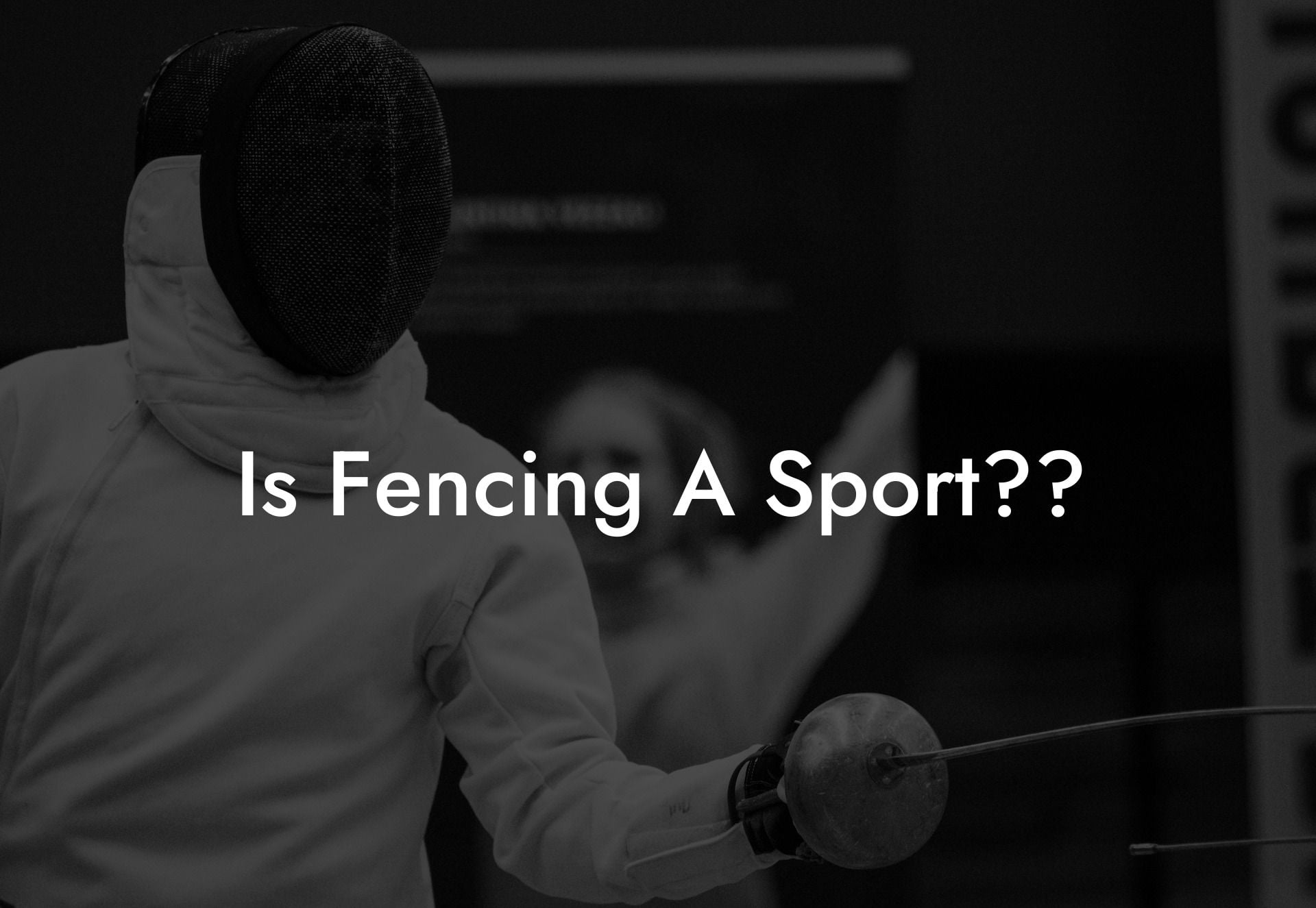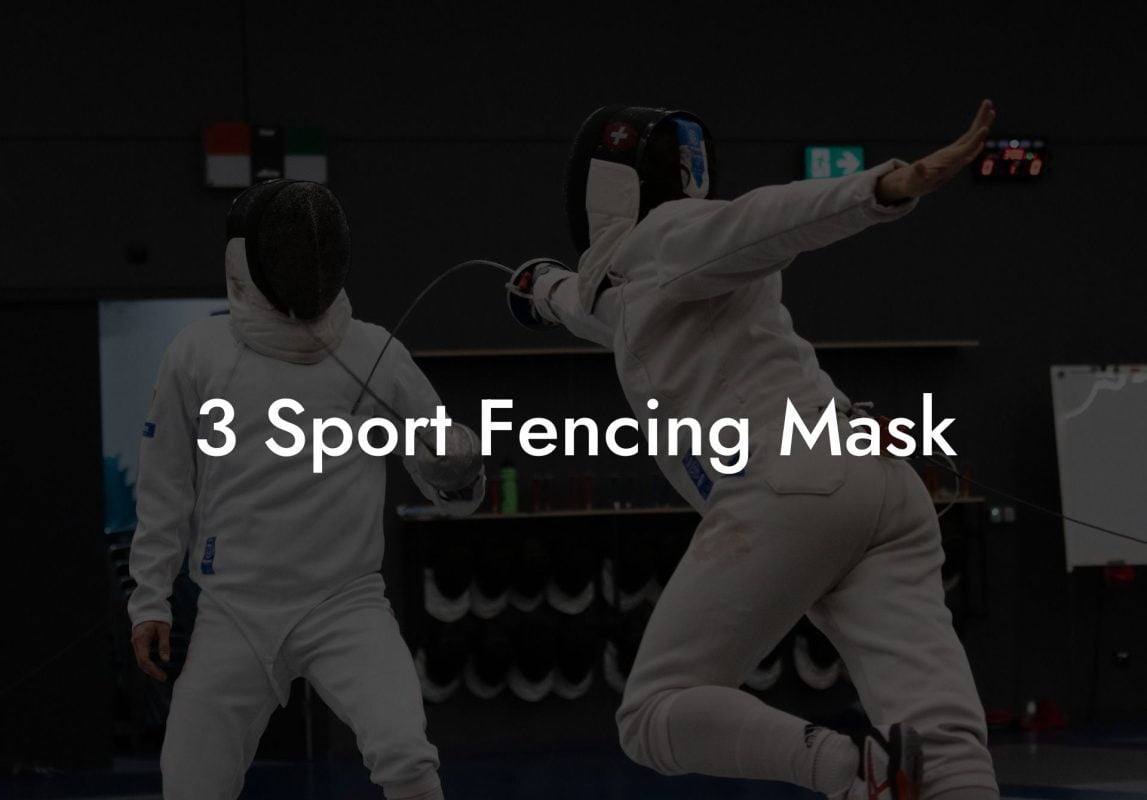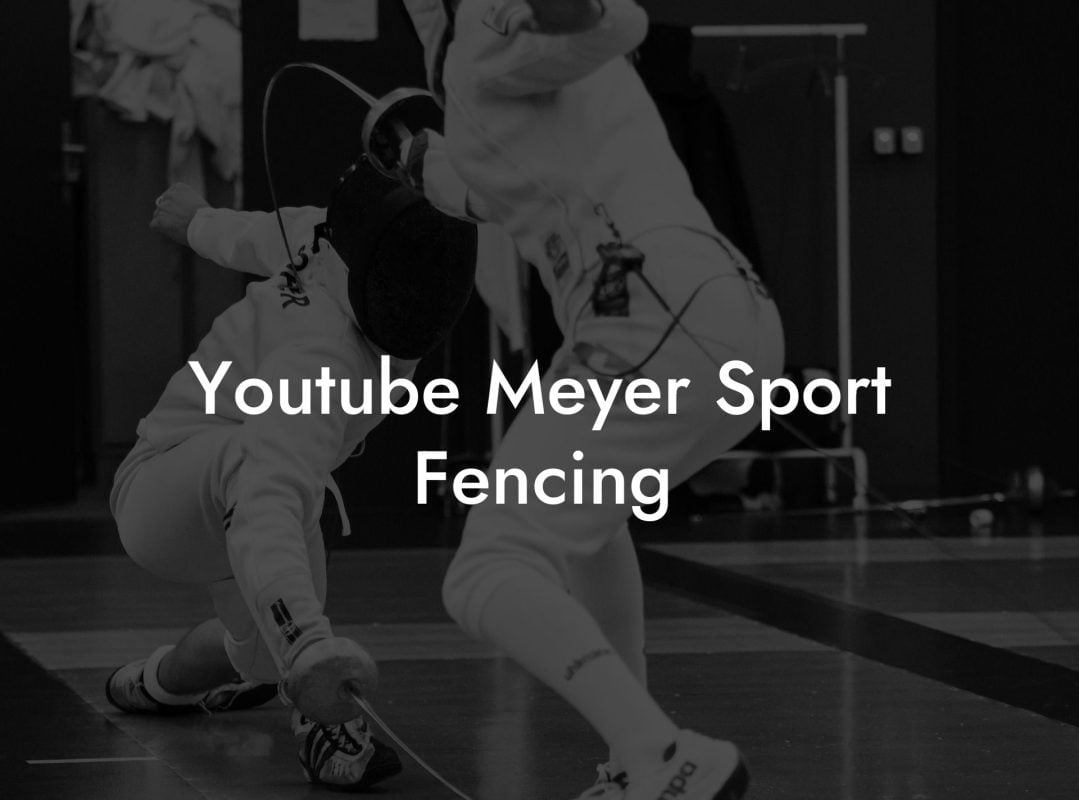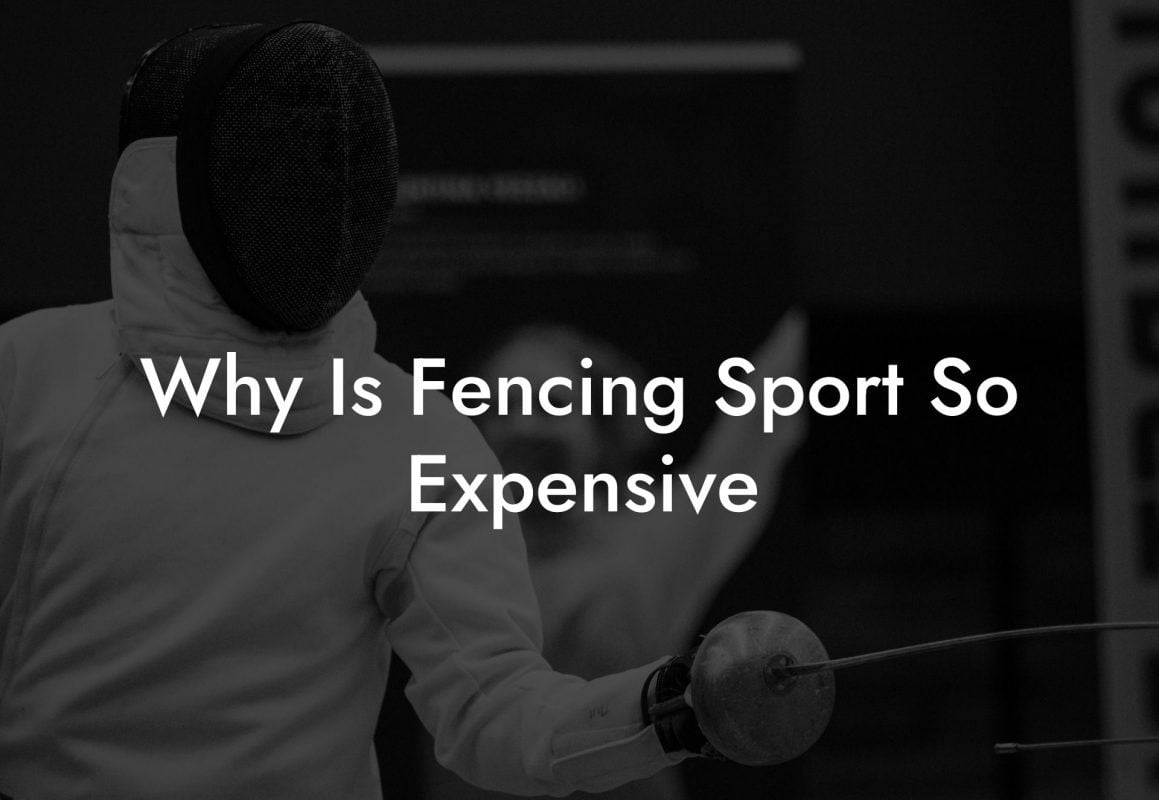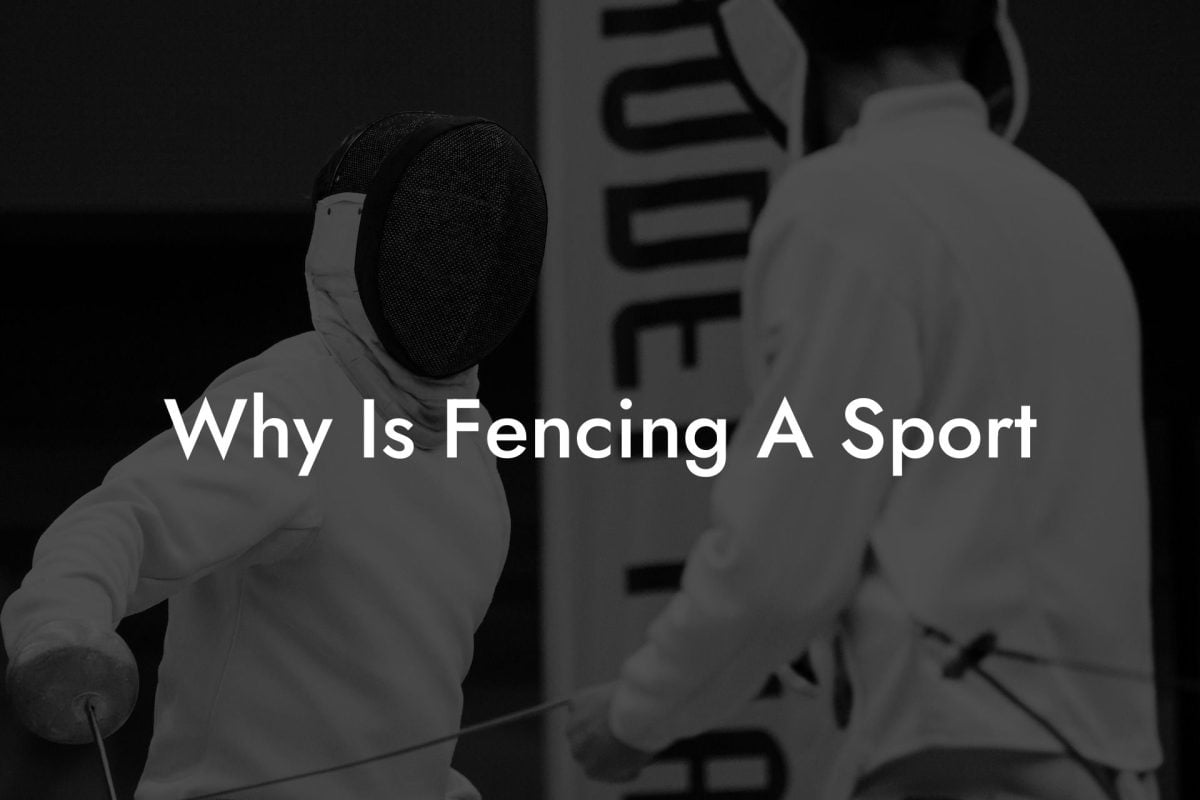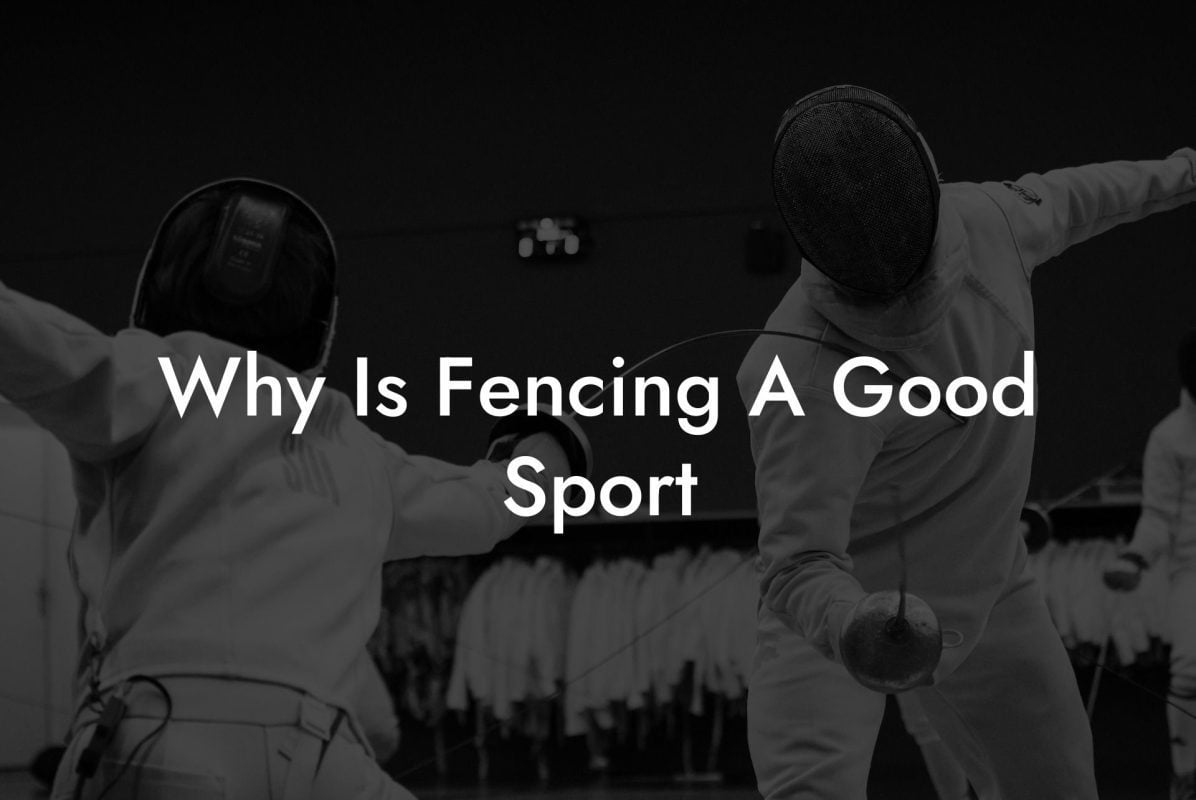Are you unsure about whether fencing qualifies as a sport? Perhaps you've heard whispers or faced raised eyebrows when describing your fascination with this unique physical activity. In this post, we will examine the qualities that fencing brings to the table, and help dispel any doubts you may have about its status as a true athletic endeavor.
Is Fencing A Sport? Table of Contents
Physical Activity and Competition
Physical Activity and Competition
One of the major components that define a sport is the level of physical activity and competition involved in it. Fencing as a sport demands an exceptional level of physical fitness, technical expertise, and strategic thinking. The matches involve quick bursts of intense action, with athletes lunging, parrying, and executing fast footwork to out-maneuver their opponent.
Agility and Coordination
The constant movement in fencing requires impressive agility, balance, and coordination. Fencers must be able to execute rapid changes of direction while maintaining full control over their own body and weapon.
Strength and Endurance
Fencers need a significant amount of muscular strength to wield their weapons and control their movements. Additionally, the sport demands both aerobic and anaerobic endurance, as the repeated short bursts of intense activity can take a toll on even the most seasoned athlete.
Organized Competitive Structure
A well-organized competitive structure is another important element of a sport. Fencing has established national and international organizations governing the sport, with the Fédération Internationale d'Escrime (FIE) being the global governing body for fencing. Fencers can compete at various levels, including local and regional tournaments, national championships, and prestigious international events, such as World Cups and the Olympic Games.
Rule System
Like any other sport, fencing has a specific set of rules that dictate how the matches are conducted, scored, and won. These rules are in place to ensure fair, safe, and consistent competitions.
Distinct Disciplines and Techniques
Within the sport of fencing, there are three distinct disciplines – foil, epee, and saber – each with its own unique weapon, target area, and set of rules. Additionally, fencers can specialize in different techniques and styles, which adds even more depth and variety to the competitive landscape.
Life-Long Endeavor and Skill Development
An integral aspect of a sport is the opportunity for continuous growth and skill development. Fencing provides the chance for athletes to train and compete from childhood through adulthood, continually honing their technical abilities and tactical knowledge.
Coaching and Training
Fencers can benefit from structured coaching and training programs, either at their local fencing club or through official national programs. This enables them to develop their skills, techniques, strategies, and mental strength under the guidance of experienced coaches and mentors.
Progression and Achievement
As fencers climb through the ranks and achieve various milestones, they can earn nationally and internationally recognized ratings, which showcase their level of skill and expertise within the sport.
Is Fencing A Sport?? Example:
Consider a young fencer who starts training at the age of eight. She diligently practices her footwork, acquires technical expertise in all three weapons, develops strategic thinking, and competes in local tournaments. Over time, she progresses through the national ranks, eventually earning a spot on her country's national team. This dedicated fencer then proudly represents her nation in international competitions and one day realizes her lifelong dream of competing in the Olympic Games. This inspiring journey embodies the essence of fencing as not only a sport but a true athletic lifestyle.
In conclusion, there should be no doubt that fencing truly deserves recognition as a legitimate and exciting sport. It offers athletes opportunities for growth, skill development, and lifelong achievement, while exhibiting the core features of demanding physical activity, well-organized competitive structure, and dynamic challenges. If you enjoyed this article, feel free to share it with others who may be interested in this fascinating discipline and don't hesitate to explore our other guides, tips, and resources available on Anchorage Fencing Club.

